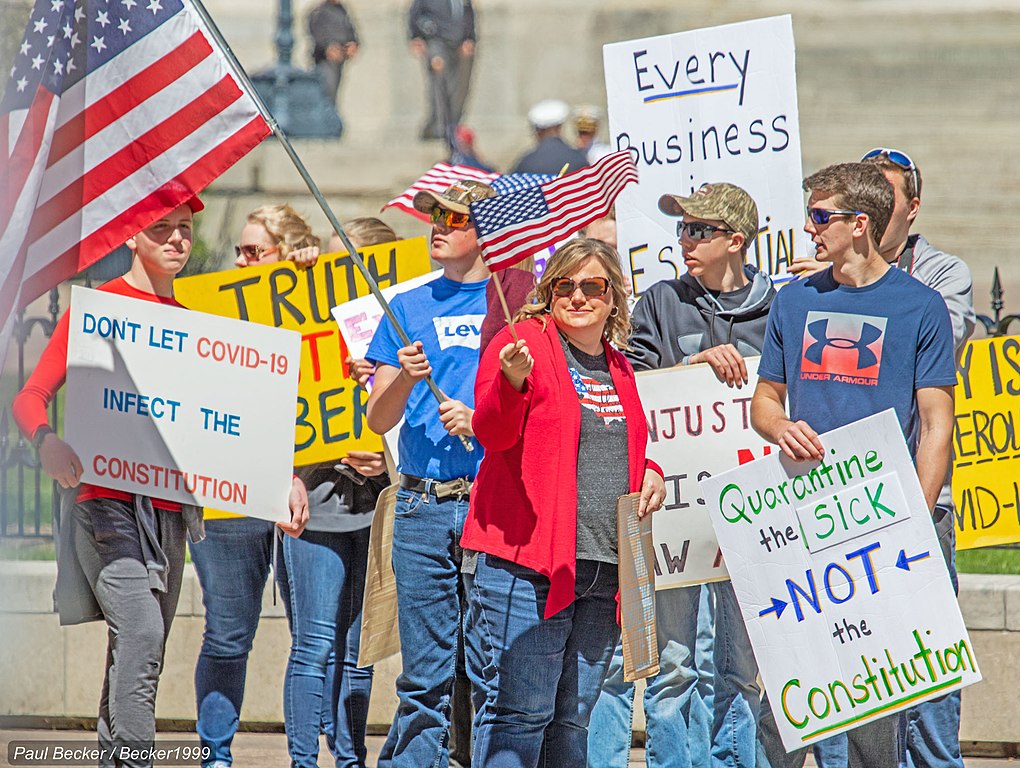
A Killing Field of Values
The virus isn’t just attacking our values, it’s highlighting their true nature.
This the third post in a series on the pandemic and its impact on progress and problem solving. In the last post, we looked at conspiracy theories and why their misconceptions envelope all of us.
Largely unexamined, they seem impervious to reality, the immutable standards by which we live our lives. But like it or not, our values are explanations. They may be stubborn. They may voraciously consume our weaker beliefs. But when brought in conflict with other values, they reveal their true explicable nature.
The pandemic pits our most cherished values in death struggles. We’ve long debated these values in isolation, like the right to life and the right to die. But in crises, these values must survive as competing explanations. Like the rare encounters between polar bears and grizzlies, reclusive and peerless values suddenly become open and vulnerable.

Like blood in the water, crises often summon a melee of values. Civil libertarians argued for our inalienable individual rights and freedoms. Executives and legislators argued over the rule of law and jurisdictional boundaries. Business leaders warned of the economic fallout and their deleterious impacts on our health and safety. When advocates coalesce around a common cause, they may make strange bedfellows. What do anti-vaxxers, Tea Party activists, and QAnon have in common? They all think lockdowns are a bad idea.
As values rise from their slumber and shed their explanations, they move closer to reality. We are all called to be warriors! (But only the most vulnerable are drafted.) We are all in this together! (But only an “essential” few are sent to the front lines.) We will all be richer for it! (But the spoils of war will be shared unequally.)
Immediately, we discover that values are not quite as fixed as we might have imagined. Communities that have long sheltered values of individual and market freedoms are advocating values of collective action. Ohio Governor Mike DeWine, a conservative Republican, doesn’t think the government should be telling people what to do. “But we are in a health crisis,” he said. Those traditionally aligned with the right to life are discovering a higher value in Our way of life. “There are more important things than living,” said Texas Lt. Gov. Dan Patrick. The cure can’t be worse than the disease is now a political slogan on the right.
Divided, values become increasingly concrete, even quantifiable. How could anyone assess the value of a life? The Value of a Statistical Life is something economists calculate all the time. Whether more people die during an economic crisis or a health crisis is an empirical question. One study from the University of Wyoming estimated that the lockdown saved the economy $5.2-trillion. Another study couldn’t imagine any intervention with such large potential benefits.
As anti-racism protests mounted around the world, values were once again set against each other. Public health experts, who for months were advising the public to avoid large gatherings, began advising them to join mass protests. Some found this surprising, even hypocritical. But like all values, these explanations are amenable to criticism: By one narrow measure, one in every 1000 black men in the US can expect to be killed by the police. By another, the pandemic is killing black people at twice the rate of their population share. And sadly there is no prospect for a racism vaccine on the horizon.
This is how values become vulnerable. While it’s true that many explanations are beyond evidence, none are beyond criticism. Values are fallible explanations, through and through.
And some values may face even the most severe form of criticism. Timothy Carney suggested this natural experiment: “If this virus spreads in outdoor settings, the protests will prove to be superspreader events. If they don’t, then the lockdowns on outdoor activity are pointless shackles on people’s freedom.”
The pandemic isn’t merely putting values into conflict. It’s shaking off their inexplicable camouflage and demanding resolution.
Lives hang in the balance and there’s no shortage of people answering the call to help. But experts are struggling, too. We’ll look at the crisis of expertise in the next post.
